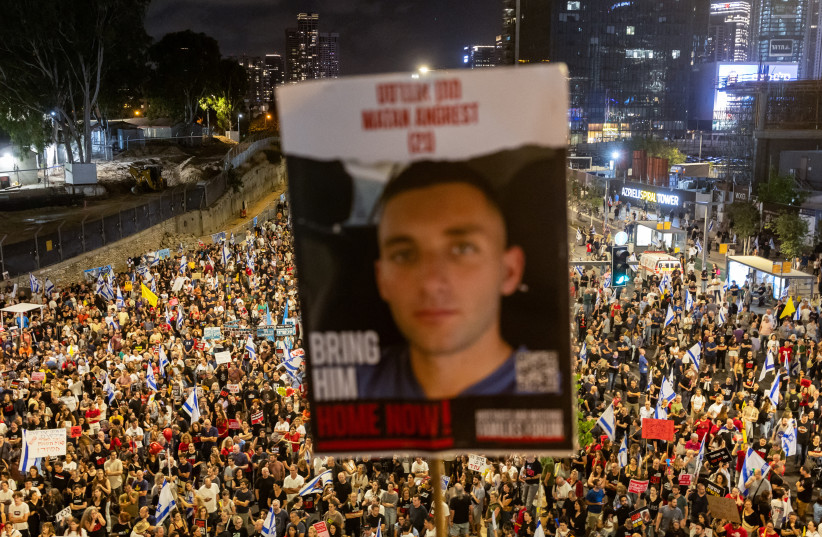Leaders of the Knesset's two haredi parties, Shas and United Torah Judaism (UTJ), announced on Tuesday that they would support the hostage deal that Israel proposed and US President Joe Biden outlined on Friday night.
The haredi parties' support is significant, as it indicates that a majority of the governing coalition support the deal, alongside a majority in the opposition as well.
A spokesperson for Shas said in a statement that in a meeting on Monday, the party decided to "fully support" the Israeli proposal, which includes "far-reaching steps to bring back the hostages and fulfill the commandment of freeing hostages."
The leader of UTJ's Hasidic faction, Construction Minister Yizhak Goldknopf, announced already on Monday that his faction would support the deal, and MK Yaakov Asher, a member of UTJ's Lithuanian faction, said that this was his faction's position as well.
Growing political support for hostage deal
Opposition leader MK Yair Lapid said in response, "The haredi parties' announcement of support in the hostage deal is an important moral step of national responsibility. There is a large and clear majority in the government, Knesset, and public in favor of a deal."

The leaders of Israel's governing coalition's two far-right parties, Finance Minister Bezalel Smotrich (Religious Zionist Party) and National Security Minister MK Itamar Ben-Gvir (Otzma Yehudit), reiterated earlier this week that they would leave the government if the deal as Biden presented it went through. The two ministers have argued that the concessions to Hamas were too far-reaching and that they indicated that Israel had lost the war against Hamas.
Ben-Gvir and Smotrich share 13 Members of Knesset between them. The current coalition has 72 MKs, and their departure would end the coalition's majority in the 120-member Knesset and likely would topple the government.
If the deal does not go through, Minister-without-portfolio MK Benny Gantz would likely leave the government with his eight MKs. This could lead to protests and increased pressure on the government, but the government would still remain with its original 64-MK majority.
Asked whether Netanyahu was prolonging the war for political purposes, Biden said in an interview for TIME magazine that was published on Tuesday that "there is every reason for people to draw that conclusion." Indeed, a deal as it stands now could mean the end of Netanyahu's government, and the prime minister now needs to navigate a way out of this political bind.
Biden's speech on Friday contributed to this political bind. During the war, the prime minister rarely laid out any publicly the details of any of Israel's hostage deal proposals. This has allowed him to avoid an outbreak of public pressure, thus leaving him room to maneuver in an attempt to push through a deal without losing the premiership. However, Biden stressed in his speech that the proposal was Israel's and had been agreed upon by Israel's war cabinet. This removed a layer of ambiguity, which will make it harder for Netanyahu to delay a deal if Hamas agrees to it.
Israel's proposal, according to Biden included a three-phase deal: Female, sick, elderly, and wounded hostages would be freed during the first six weeks, in exchange for a temporary cease fire; the second phase would see the release of the remainder of the living captives, in exchange for the "cessation of hostilities permanently"; and the third phase deals with the reconstruction of Gaza and the return of the remaining hostages' corpses.
